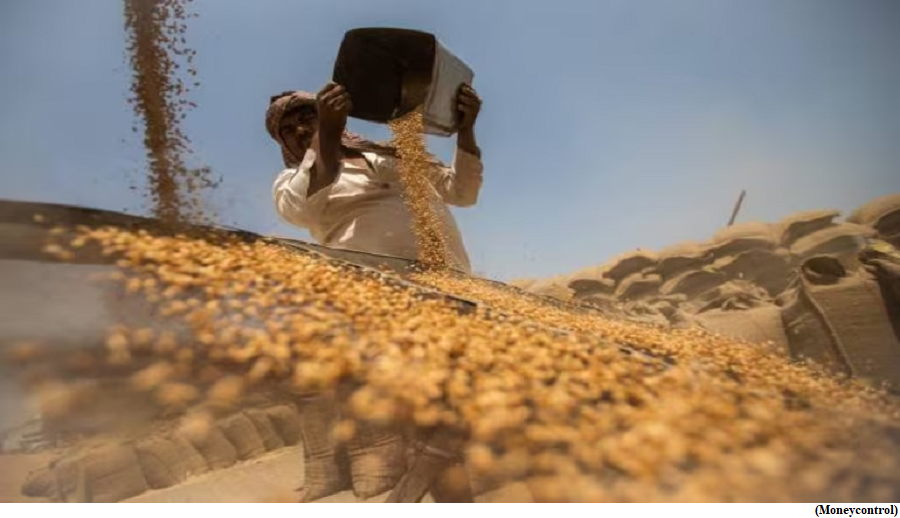Jnanpith for Gulzar, Sanskrit scholar Rambhadracharya (Miscellaneous)

Why in news?
- Celebrated Urdu poet Gulzar and Sanskrit scholar Jagadguru Rambhadracharya have been selected for the 58th Jnanpith Award.
Gulzar:
- Sampooran Singh Kalra, popularly known as Gulzar, is considered one of the finest Urdu poets of his generation. He is also known for his work in Hindi cinema.
- Gulzar, born in 1934, received the Sahitya Akademi Award for Urdu in 2002, the Dadasaheb Phalke Award in 2013, and the Padma Bhushan in 2004. He has also won five National Film Awards.
- He penned the lyrics for the song Jai Ho from the film Slumdog Millionaire that received an Oscar in 2009 and a Grammy in 2010.
- He is known for his work in Maachhis, Omkara, Dil Se, Guru, and Aandhi. Gulzar has also directed classics such as Koshish, Parichay, Mausam, and Ijaazat, as well as the television serial Mirza Ghalib.
- In poetry, he invented a new genre ‘Triveni’ which is a non-mukaffa poem of three lines. Gulzar has always created something new through his poetry. For some time now he has also been paying serious attention to children’s poetry.
Jagadguru Rambhadracharya:
- He is a renowned Hindu spiritual leader, educator and writer of more than 240 books and texts, including four epics.
- He is the founder and head of Tulsi Peeth at Chitrakoot in Madhya Pradesh.
- Rambhadracharya, a polyglot who speaks 22 languages, is one of the four Jagadguru Ramanandacharyas of the Ramananda sect and has been holding this position since 1982.
- He received the Padma Vibhushan in 2015.
About Jnanpith Award:
- The Jnanpith Award is presented by the Bharatiya Jnanpith, which was established in 1944.
- The award carries a cash component of ₹11 lakh, a statue of Vagdevi, and a citation.
- It is the second time that the award is being given for Sanskrit and the fifth time for Urdu.
Increase in Authorized Capital of Food Corporation of India from Rs 10,000 Crore to Rs 21,000 Crore
(GS Paper 3, Economy)
Why in news?
- Recently, the Government of India (GoI) has announced an increase in the authorized capital of the Food Corporation of India (FCI) from Rs 10,000 Crore to Rs 21,000 Crore.

Role of FCI:
- FCI, as the pillar of India's food security architecture, plays a pivotal role in various crucial functions, including the procurement of food grains at Minimum Support Price (MSP), maintenance of strategic food grain stocks, distribution to state governments and Union Territories (UTs), and stabilization of food grain prices in the market.
Why it matters?
- The increase in authorized capital is a significant step towards enhancing the operational capabilities of FCI in fulfilling its mandate effectively. To match the gap of fund requirement FCI resorts to Cash Credit, Short Term Loan, Ways & Means etc.
- Increase of Authorised capital and further infusion will reduce the interest burden, reducing the economic cost and ultimately affecting the subsidy of GOI positively.
- With this infusion of capital, FCI shall also embark upon modernizing its storage facilities, improving transportation networks, and adopting advanced technologies.
New initiatives:
- GoI provides equity to FCI for working capital requirement and for creation of capital assets. FCI is undertaking a comprehensive initiative to create an Integrated IT system, leveraging existing internal systems (FAP, HRMS) and external systems (State procurement portals, CWC/SWC).
- The E-office implementation has already made FCI a less paper organization. These initiatives of integrated IT solutions serving as the core operational software for FCI, shall provide a single source of information and streamline functions with a common digital backbone.
- As a part of enhancing its efficiency, FCI is diligently executing tasks such as cement roads, roof maintenance, illumination, and weighbridge upgrades, enhancing food security.
- Purchase of lab equipment and the development of a software platforms for QC labs aim to improve quality checking. Studies on “Out-Turn Ratio”, “Shelf-Life”, and “Pest Management for Fortified Rice” complement FCI's commitment to building an efficient and food security management system.
- The integration of automated digital equipment further aligns with FCI's objectives, aiming to remove human intervention for a transparent procurement mechanism and enhance infrastructure for employees, saving on rent and creating assets for FCI.
About FCI:
- FCI is a statutory body set up in 1965 under the Food Corporations Act 1964. It was established against the backdrop of major shortage of grains, especially wheat.
The Objectives of the Food Corporation of India is as follows:
- Proper price support for to protect the interests of poor farmers
- Effective distribution of foodgrains through a Public Distribution Systems (PDS)
- Maintenance of operational and buffer stocks of food grains to ensure continued supply of essential food supply.
- Regulation of market price for foodgrains so that the population can get them at an affordable price.



